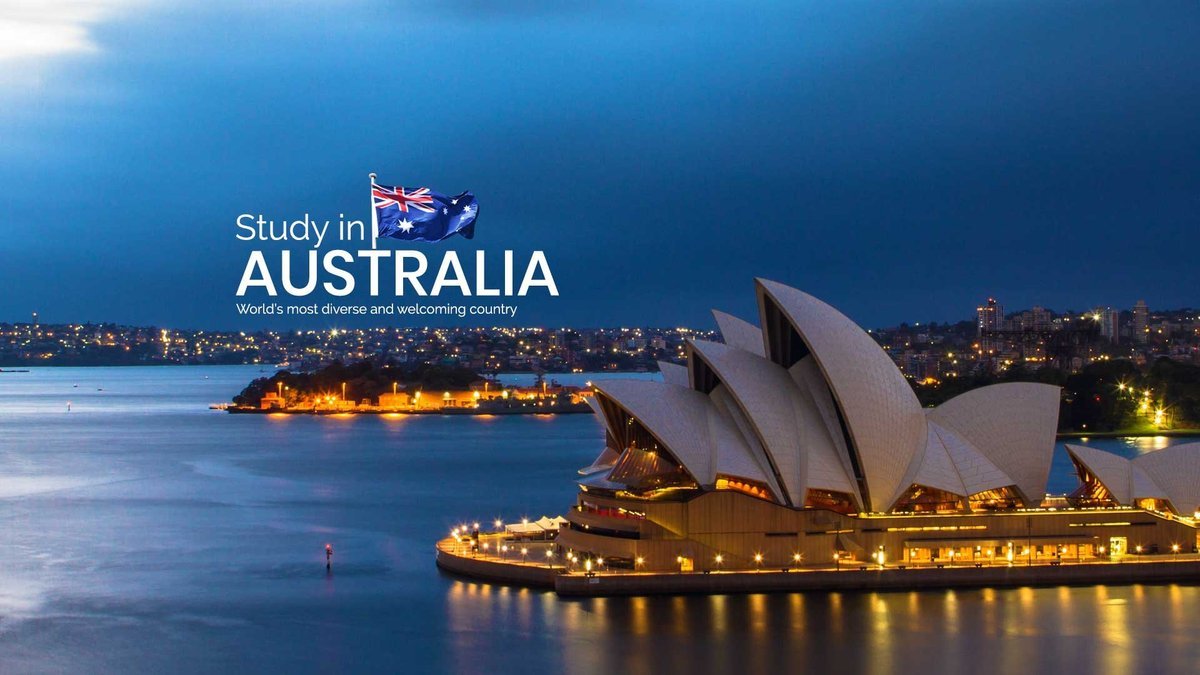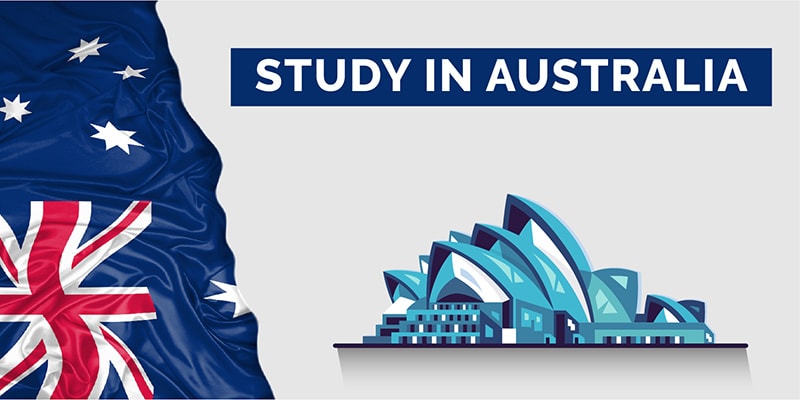Study in Australia: A Comprehensive Guide for International Students
Australia is one of the most popular destinations for international students, offering world-class education, a rich cultural experience, and a high quality of life. Whether you’re looking to pursue a degree, enhance your career prospects, or explore a new culture, studying in Australia can be an enriching experience.
In this guide, we will walk you through everything you need to know about studying in Australia, from choosing the right university to understanding visa requirements and adjusting to life in Australia.

Why Study in Australia?
Australia offers a unique blend of high-quality education, diverse cultural experiences, and a safe environment. Here are some reasons why Australia is an attractive study destination:
-
Top-ranked universities: Australian universities are known for their excellent academic reputation and are regularly ranked among the top in the world. Institutions such as the University of Sydney, University of Melbourne, and Australian National University offer globally recognized degrees in various fields.
-
High quality of life: Australia offers a balanced lifestyle with beautiful landscapes, vibrant cities, and a friendly atmosphere. Students can enjoy outdoor activities, explore beaches, and experience diverse cultures, making it a fantastic place to live and study.
-
Work opportunities: Australia offers excellent work opportunities for international students. With a student visa, you can work part-time during your studies, allowing you to gain practical experience and supplement your income.
-
Cultural diversity: Australia is known for its multicultural society. This diversity provides international students with the opportunity to connect with people from various backgrounds and cultures, making it easier to adapt and build relationships.
Choosing the Right University in Australia
Choosing the right university is one of the most important decisions you’ll make. Here are a few tips to help you find the best university for your academic and personal goals:
1. Research Programs and Courses
Different universities in Australia offer a variety of courses and programs. Whether you’re interested in engineering, business, health sciences, or arts, you’ll find a university that offers your desired course. It’s important to research the program structure, accreditation, and reputation of the university within your field of interest.
Some universities even offer online courses and flexible learning options, giving you more flexibility in your studies.
2. Consider Location and Lifestyle
Australia offers a range of study destinations, from large cities like Sydney and Melbourne to smaller, more relaxed towns. The location of your university will influence your lifestyle, accommodation options, and overall experience.
Consider factors like climate, cost of living, and transportation when choosing your university and city. Larger cities tend to have more job opportunities, while smaller towns offer a quieter, more laid-back lifestyle.
3. Check University Rankings
While rankings shouldn’t be your sole consideration, they can help you assess the quality of education and research opportunities at a university. Popular ranking systems include QS World University Rankings and the Times Higher Education (THE) Rankings.
For instance, universities such as the University of Sydney, University of Melbourne, and Australian National University consistently rank highly for various fields.
4. International Student Support
Studying abroad can be challenging, especially when it comes to adjusting to a new culture and academic system. Look for universities that offer strong international student support services. These services may include orientation programs, academic assistance, and social events to help you integrate into the university community.
Visa Requirements for Studying in Australia
To study in Australia, you’ll need to apply for a student visa. Here’s what you need to know about the subclass 500 student visa:
1. Eligibility Criteria
To apply for a student visa, you must meet the following requirements:
-
Be enrolled in a registered full-time course at an Australian university.
-
Provide evidence of sufficient funds to cover your tuition fees, living expenses, and travel costs.
-
Meet the English language proficiency requirements, such as the IELTS or TOEFL test scores.
2. Application Process
You can apply for a student visa online through the Australian Department of Home Affairs website. The application process includes providing necessary documents, such as your passport, enrollment confirmation, financial proof, and health insurance.
The visa processing time may vary depending on your application, so it’s essential to apply well in advance.
3. Work Rights
While studying in Australia, the student visa allows you to work part-time (up to 40 hours per fortnight during term time and unlimited hours during breaks). This can help you gain experience, meet new people, and support your living expenses.
Cost of Studying in Australia
Studying in Australia can be a significant investment, so it’s important to plan your finances carefully. Below are some of the main costs you’ll need to consider:
1. Tuition Fees
Tuition fees vary depending on the university and course. On average, undergraduate courses can cost between AUD 15,000 to AUD 35,000 per year, while postgraduate courses range from AUD 20,000 to AUD 50,000 annually. International students pursuing medical or veterinary studies may face higher fees.
2. Living Expenses
Living expenses in Australia depend on the city and your lifestyle. On average, students spend between AUD 1,000 and AUD 2,000 per month on accommodation, food, transport, and other living costs. Cities like Sydney and Melbourne tend to be more expensive, while smaller cities like Adelaide and Hobart offer more affordable options.
3. Scholarships and Financial Aid
Many universities in Australia offer scholarships and financial aid for international students. These scholarships can help cover tuition fees, living expenses, or both. Make sure to check the scholarship opportunities available at your chosen university.
You can also explore external scholarships and funding options provided by organizations like Australia Awards or the Endeavour Scholarships.
Life as an International Student in Australia
Australia is known for its laid-back and friendly atmosphere, making it an ideal destination for international students. Here are some aspects of student life in Australia:
1. Accommodation
There are various accommodation options for international students in Australia, including on-campus housing, homestays, and private rentals. Living on-campus provides the advantage of being close to classes, social events, and student services.
Private rentals and homestays are great alternatives if you prefer more independence or wish to experience Australian family life.
2. Social and Cultural Life
Australia is a culturally diverse country with a thriving social scene. As an international student, you’ll have the chance to explore the vibrant cultural events, festivals, and local traditions. Many universities host student clubs and societies where you can meet people from around the world and make lasting friendships.
3. Healthcare
All international students in Australia are required to have Overseas Student Health Cover (OSHC) to access healthcare services. OSHC covers medical expenses, including doctor visits, hospital stays, and emergency care. It’s essential to arrange your health insurance before arriving in Australia.
Frequently Asked Questions (FAQs)
1. Can I work while studying in Australia?
Yes, as a student visa holder, you can work part-time during your studies (up to 40 hours per fortnight during the semester and unlimited hours during holidays). This can help you support your living expenses and gain valuable work experience.
2. What are the language requirements for studying in Australia?
Most Australian universities require international students to demonstrate proficiency in English. This is usually done through standardized tests like IELTS, TOEFL, or PTE Academic. Minimum score requirements vary by university and program.
3. How do I apply for a student visa for Australia?
To apply for a student visa, you’ll need to provide documents such as your passport, university enrollment confirmation, financial proof, and English language proficiency results. Applications can be submitted online through the Australian Department of Home Affairs website.
4. How much does it cost to study in Australia?
Tuition fees for international students in Australia range from AUD 15,000 to AUD 50,000 per year, depending on the program. Living costs can range from AUD 1,000 to AUD 2,000 per month. It’s important to plan your finances accordingly.
5. Can I stay in Australia after completing my studies?
Yes, international students who complete their studies in Australia may be eligible for a Temporary Graduate Visa (subclass 485), which allows you to stay in Australia for work opportunities after graduation. The visa duration depends on the level of study completed.
Conclusion
Studying in Australia offers an incredible opportunity to experience a world-class education while immersing yourself in a dynamic, multicultural environment. With its high-quality universities, diverse culture, and exciting lifestyle, Australia is the perfect destination for international students looking to broaden their horizons and build a successful future.
If you’re ready to start your journey, explore your options, and get in touch with universities today!
For more information on studying in Australia, visit our website for detailed resources and guidance. Safe travels and happy studying!










